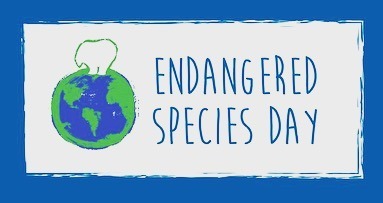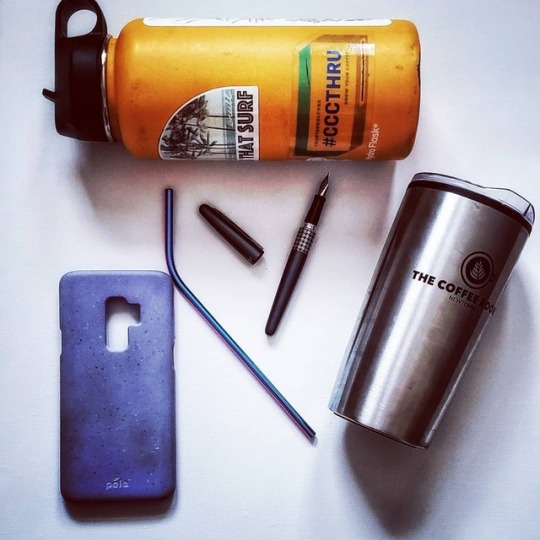#sustainabilityblog
Explore tagged Tumblr posts
Text
Launch a sustainable living blog, eco store, or green lifestyle brand with the friendly domain http://legreendude.com. Available now: https://www.godaddy.com/en-uk/domainsearch/find?domainToCheck=legreendude.com
0 notes
Photo

Endangered Species Day- an opportunity for people to learn about endangered species, educate people on how they can be protected, and celebrate those animals that have already recovered due to conservation efforts 💫 . . Because of the pandemic, the celebrations/events/activities will be held online, available for all who are interested. I’ll post a link at the bottom ✨ . . Ways that you can take part from home: - Learn about endangered species in your area/ that you are interested in. ✨ - Choose sustainable products ✨ - Do not support the selling of items made from endangered species or that contribute to their endangerment✨ - Opt for native species when it comes to plants✨ - Minimize/ stop using herbicides & pesticides ✨ - Get involved in conservation efforts ✨ . . “Not everyone has a chance to volunteer their time to protect endangered species, but many people can do their part to help preserve biodiversity from their own homes by becoming more aware of their environment and the impacts of their actions.” . . https://www.nwf.org/Our-Work/Wildlife-Conservation/Endangered-Species/Endangered-Species-Day . . #endangeredspecies #wildlifeconservation #conservationbiology #conservationist #naturalscience #environmentalscience #environmentalscientist #sustainability #livesustainably #sustainableliving #sustainabilityblog https://www.instagram.com/p/CANgehhD1iJ/?igshid=zy5xj1s4n3zz
#endangeredspecies#wildlifeconservation#conservationbiology#conservationist#naturalscience#environmentalscience#environmentalscientist#sustainability#livesustainably#sustainableliving#sustainabilityblog
0 notes
Text
My Journey Into Aquaculture
By Lianna McCurdy
Did you know that because fish float and aren’t subject to gravity, some species require less feed than land animals? When I recently teamed up with HATCH, a sustainable aquaculture accelerator program, I dove head first into a world of aquaculture and sustainability. Now, my head is filled with fascinating fish and seafood facts, more than I have ever known! I am undeniably a seafood consumer, eating fish in various shapes, forms, and preparations nearly every week. Learning from HATCH and other noteworthy resources, I am on my way to understanding why my seafood and the aquaculture industry are so important.

I’m working to make sense of it all: aquaculture, sustainability, the future of our food, the future of our planet… the list goes on! So, I’ll begin this journey into aquaculture by sharing some essential points I’ve uncovered about the industry thus far.
Our Earth’s population is predicted to reach 10 billion by 2050, and our planet will be in need of a food resource that does not encumber its health. There won’t be enough agricultural land available to raise cows, chickens, pigs, or other livestock to meet the protein needs of our growing populace. The aquaculture industry is currently valued at around USD 180 billion, and expected to inflate to USD 224 billion by 2022. This is attributed to the growing demand for aquaculture developments worldwide, fueled by aforementioned population growth and inability to catch enough fish from wild ocean sources.
Right now, in the year 2019, aquaculture accounts for a little more than 50% of the world’s fish used for food. There is massive biodiversity within this spectrum and nearly 580 different aquatic species are being farmed via aquaculture methods. Aquaculture isn’t limited to fish—it also includes shellfish like shrimp and oysters, and even aquatic plants such as seaweed. The potential for aquaculture’s utilization as a primary food source is huge.
However, the current practices of the aquaculture industry are in need of sustainable reform. There are environmental impacts associated with aquaculture practices of some farming programs. For example, waste buildup from contained fish populations can cause algae blooms that deplete oxygen and create ocean dead zones (places where no life exists). Use of antibiotics and chemicals in fish feed can negatively impact nearby ecosystems. Important small-specie fish populations that feed larger fish are often exploited.
Aquaculture investors and accelerator programs like HATCH are investing in companies performing research and developing tech to create a fully sustainable aquaculture industry. Biology-focused companies such as Prospective Research are building microbiome modulators to replace antibiotics and medicated feed in aquaculture and agriculture. This means farmed fish populations have potential to be raised in a healthier environment with a reduced impact on ocean ecosystems. AlgaePro is growing a sustainable algae biomass for potential use as aquaculture feed, thus reducing the need to use fish to feed fish. Companies like Minnowtech, Wittaya Aqua, and Sensaway are developing technology to increase the accessibility of farming data, improving seafood farming conditions and management techniques. This work contributes to the goal of creating a sustainable solution to feed the world.
I have just skimmed the surface of the aquaculture industry. There are so many incredible discoveries to make about this essential area of commerce, and the learning only starts here. Right now, awareness is key. Every day, I am becoming more conscious of the necessary steps our fundamental industries should take to achieve sustainable innovation with the vision of positively impacting our planet.
If you’re interested in learning more about sustainable aquaculture, check out these TED Talks:
Mike Velings: The case for fish farming
Bren Smith: Vertical ocean farming - the least deadliest catch
#aquaculture#sustainability#feedtheplanet#ourplanet#sustainabilityblog#coolfacts#fishfacts#fishfarming#fish farming#sustainable lifestyle
0 notes
Photo

A Beginners Guide to Sustainable Living. We all start as beginners. It's something that I lived hearing when I first started running. No one wants to be the newbie and I am no exception, on and off the track. When i started trying to living more sustainably I had no idea what I was doing. Instagram was a very intimidating place to think about it. So many people do so much and find such cool ways to help the environment and I am just a little student to their awesomeness. I would be lying if I didnt say I wasn't intimidated. But I got over that. Here are some easy, none expensive and non time consuming ways to make the world a little bit greener without having to readjust your entire life right away. Check out my newest blog post at www.erikaadults.com 🐳🐡🐳🐡🐳🐡🐳🐡🐳 #sustainability #greenliving #beginner #sustainabilityblogging #wellness #wellnessblog #wellnessblogging #gogreen #mindful #mindfulness ##sustainabilityblog https://www.instagram.com/p/BvC4e7dFDPX/?utm_source=ig_tumblr_share&igshid=1t62ihxqzwuoc
#sustainability#greenliving#beginner#sustainabilityblogging#wellness#wellnessblog#wellnessblogging#gogreen#mindful#mindfulness#sustainabilityblog
0 notes